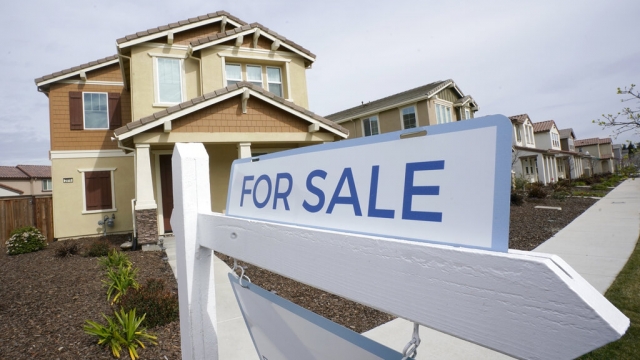As skyrocketing housing prices persist across the country, the resulting homelessness crisis is growing, and more Americans are in need of assistance.
However, some industry experts have noted an uptick in the average age of unhoused populations.
“It's very tough. Very tough. Not knowing where you're going to go at night is very tough. I can't even get stable work because you have to have a stable place,” said Latia Griffin, who is experiencing homelessness in Ohio.
A recent report from Harvard University's Joint Center for Housing Studies has sounded an alarm about how the aging US population intersects with the growing homelessness crisis.
Senior-led households reached an all-time high of 11.2 million in 2021, as the so-called "Boomer" generation has aged.
Increasingly, senior households are becoming "cost-burdened." That means they spend more than 30% of their income on housing.
Nearly a third of all households headed by seniors are cost-burdened, and half of that group is paying more than 50%.
Some of the highest cost-burden rates for renters 65 and older were in areas that are popular for retirement: Las Vegas, San Diego, Raleigh, Miami and Daytona Beach. And the numbers are expected to get worse.
According to the report, the number of households headed by someone aged 80 and over will double by 2040.
Home ownership is one of the chief sources of wealth for American households.
And since rates are dropping for 50- to 64-year-olds, it seems fewer seniors are aging with home equity. That can be crucial for financing medical costs, utilities, and other urgent needs.
"Just gas, maintaining a car, car insurance, clothing, food,” said Barbara Davis, a Nashville resident. "I have to live from paycheck to paycheck. I try to cutback, and I try to economize, but health-wise, there are things that I need to do to take care of my health."
SEE MORE: $7,500 cash transfers have major impact in reducing homelessness
Government housing vouchers are intended to provide affordable housing for people with low incomes, people with disabilities, and seniors.
But resources for vouchers and government housing are not enough to meet the growing need.
“The closest thing we have to a silver bullet to end homelessness would be an expansion of the Housing Choice voucher program to all the households that are poor enough to be eligible. But right now, there's enough funding for only about one in four eligible households, and waiting lists are long,” said Beth Shinn, a professor of Human and Organizational Development.
A recent Harvard University study found that between 2012 and 2017, the number of rentals in the U.S. that cost at least $1,000 a month increased by 5 million, and the number of low-cost units under $600 a month fell by 3.1 million. The affordable housing units are not necessarily occupied by seniors or low-income residents.
Andrew Aurand of the National Low Income Housing Coalition told Scripps News that residents without need can still occupy housing meant for seniors, low-income households, or those with disabilities.
“And higher-income households occupy a significant portion of that low-cost housing. And so, millions of units that technically would be affordable to extremely low-income renters is not available to them because other households with higher incomes are occupying them,” said Aurand. “And so that's the difference between affordable units and units that are actually affordable and available.”
In 2021, federal housing assistance, which can provide housing and assisted living services such as cleaning and cooking for older people, was barely enough for the elderly population.
Only a little more than a third of the 5.9 million renters ages 62 and over can be covered.
Sallie Hussey is the CEO of FiftyFoward, which assists adults 50 and older in Tennessee.
“Housing is impacting all of us, and there's just not enough housing, and there's certainly not enough affordable housing,” said Hussey. “I think it impacts older adults maybe in a little bit different way because many of them, most of them, are on a fixed income.”
Until funding assistance and housing supply can catch up with the aging population, more and more Americans may find themselves at risk of becoming unhoused.
Trending stories at Scrippsnews.com





